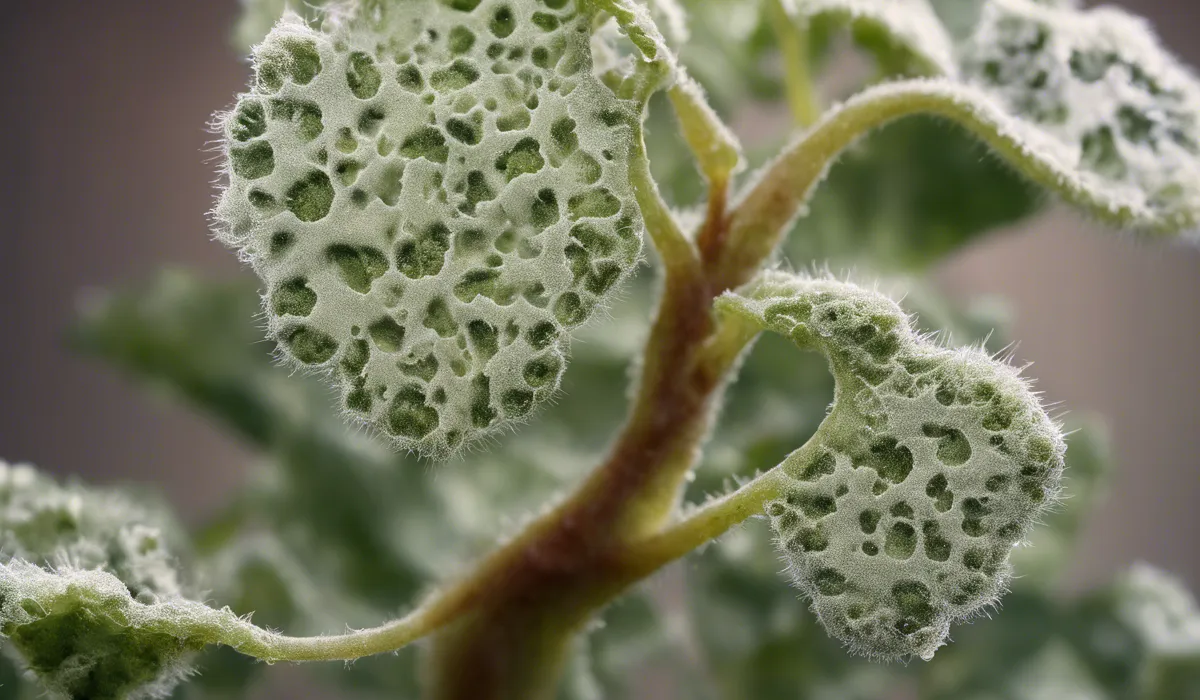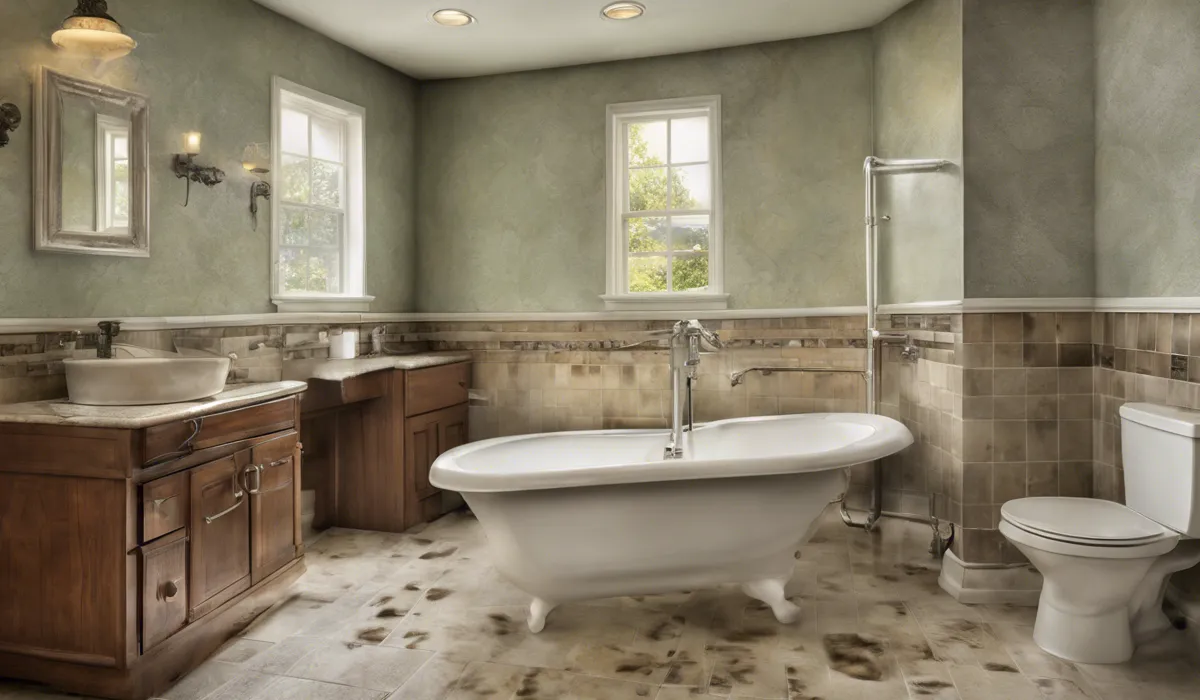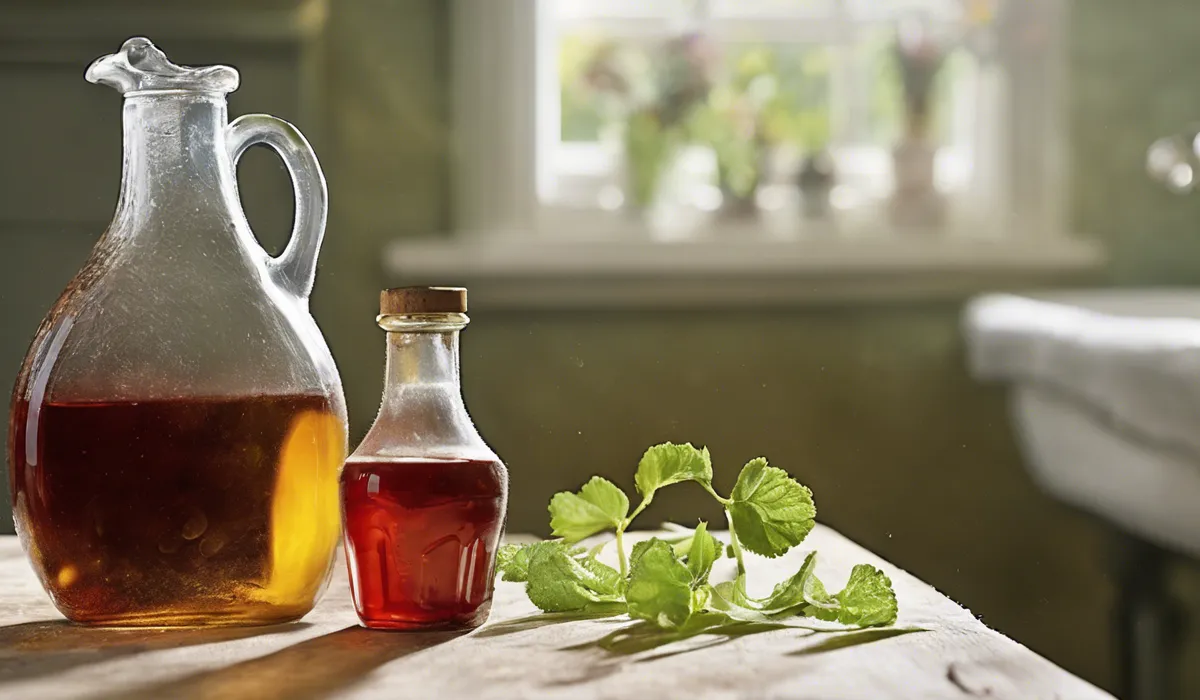Yes, vinegar can kill mildew smell. Acetic acid in vinegar neutralizes odor molecules, eliminating the musty scent. Use a mixture of white vinegar and water to treat the affected area. Vinegar’s antimicrobial properties also help prevent mildew recurrence.
Understanding Mildew and Its Causes

Mildew Explained
Mildew is a type of fungus, closely related to mold. It forms a thin, superficial layer of growth, typically white or grayish in color.
Unlike mold, which can infiltrate deeper surfaces, mildew tends to stay on the top layer, making it easier to clean.
Both are fungi but serve different roles in the environment. Mildew is often found on damp surfaces and thrives in moist conditions.
Common Breeding Grounds for Mildew
Mildew frequently appears in bathrooms, kitchens, basements, and other areas with high humidity levels.
These places provide the perfect environment for mildew to grow because they are often warm and moist.
Poor ventilation exacerbates the problem by trapping moisture and creating an ideal habitat for mildew.
Why Mildew Smells?
The odor associated with mildew is the result of compounds produced during the growth of the fungus.
These musty smells are not only unpleasant but can also signal the presence of a larger issue.
As mildew consumes and breaks down organic material, it releases these odorous compounds into the air.
Health Impacts of Mildew
Exposure to mildew can lead to health issues, particularly for individuals with allergies, asthma, or compromised immune systems.
Symptoms may include coughing, sneezing, throat irritation, and other respiratory issues.
Thus, addressing mildew promptly is important not only for cleanliness but also for health.
The Role of Vinegar in Mildew Odor Removal

Antimicrobial Properties of Vinegar
Vinegar is a powerful antimicrobial agent due to its main component, acetic acid. This acid is effective at killing bacteria and fungi, including mildew.
Its acidic nature allows it to penetrate the cell walls of the microorganisms, effectively neutralizing them.
Choosing the Right Vinegar
While there are many types of vinegar, white distilled vinegar is most recommended for mildew removal due to its higher acetic acid content.
Other vinegars like apple cider or balsamic may have additional organic compounds that could contribute to odors or stains.
Vinegar’s Odor Neutralizing Action
Vinegar doesn’t just mask odors; it eliminates them. The acetic acid reacts with the odor molecules, altering their structure so they no longer produce a smell.
This chemical reaction gets rid of the musty scent at its source.
Comparing Remedies
Compared to other commercial products, vinegar is non-toxic, eco-friendly, and cost-effective.
While bleach can also kill mildew, it is harsher on the environment and can damage certain materials. Vinegar offers a safer alternative without compromising effectiveness.
Practical Guide to Using Vinegar for Mildew Smell

Creating Your Vinegar Solution
To prepare your vinegar solution, mix equal parts of white distilled vinegar and water. For tougher mildew, you can use vinegar undiluted. Transfer the solution to a spray bottle for easy application.
Application Techniques
When applying vinegar to affected surfaces, spray generously, and allow it to sit for at least an hour.
For porous surfaces like wood, it may be beneficial to gently scrub the area with a brush to ensure deeper penetration.
After the treatment, wipe the area clean with water and dry thoroughly.
Safety Precautions
While vinegar is less hazardous than many chemical cleaners, it’s still important to use it safely. Ensure the room is well-ventilated during use.
Wearing gloves can protect your hands from the acidity of the vinegar, especially if using it undiluted.
Preventing Mildew Reoccurrence
To prevent future mildew growth, keep areas well-ventilated, use a dehumidifier if necessary, and promptly address any water leaks or spills.
Regular cleaning with vinegar can also help maintain a mildew-free environment. Consider integrating other dehumidifying strategies for a comprehensive approach.
FAQs About Vinegar Killing Mildew Smell
Does vinegar effectively remove mildew smell?
Yes, vinegar effectively removes mildew smell by neutralizing odor molecules with its acetic acid content.
Can I use any type of vinegar to kill mildew smell?
White vinegar is recommended for killing mildew smell due to its high acetic acid concentration and antimicrobial properties.
How do I use vinegar to treat an area affected by mildew smell?
Use a mixture of white vinegar and water to spray or wipe the affected area to eliminate the mildew smell.
Will vinegar prevent the recurrence of mildew?
Vinegar’s antimicrobial properties can help prevent the recurrence of mildew when used regularly.
Is vinegar safe to use on all surfaces for mildew smell removal?
Vinegar is safe for most surfaces, but it’s advisable to test a small, inconspicuous area first as it can damage certain materials like natural stone or unsealed grout.
Final Thoughts
Vinegar, with its acetic acid content, effectively neutralizes odor molecules, thus eradicating mildew smell.
It serves as a natural solution when mixed with water and applied to areas plagued by mustiness.
Moreover, the antimicrobial qualities of vinegar not only remove the smell but also help in preventing future growth of mildew.
Useful Resources
- https://www.cdc.gov/mold/control_mold.htm
- http://www.fsis.usda.gov/food-safety/safe-food-handling-and-preparation/emergencies/removing-odors-refrigerators-and
- https://msdh.ms.gov/msdhsite/handlers/printcontent.cfm?ContentID=21043&ThisPageURL=http%3A%2F%2Fmsdh%2Ems%2Egov%2Fmsdhsite%2Findex%2Ecfm%2Findex%2Ecfm&EntryCode=21043&GroupID=44
